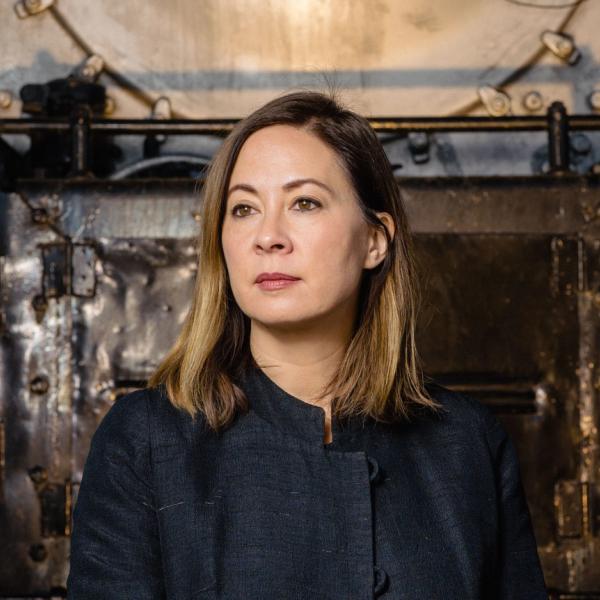Lia Purpura, Parasol Mushroom (detail), featured in AGNI 102
My Brother
Where is my brother? I am stunned,
starving, staring into the mirror
in the hopes of seeing a face other than mine
gaze back. Where is my brother?
Wasn’t I promised, once, never to be left
alone, my parents the bright light
always shining—like a street in Paris—
full of rage and life? That was a lie.
A lie, too, that I would be free here,
never to forget or to be forgotten. We think
some warm hand will always be by to guide us
to the toilet, to the cup of milk,
into the garden aflame with sun.
But Death’s is the only hand
held out to us. I should push it aside,
but how comforting to be left, still,
this one companion. How long
I’ve held Death at bay like a former lover,
pretending I never cared for her dank
hair, her coffee breath. But how intimately
I’ve studied her, running my fingers
over her pocked cheeks, the greasy hollows
of her eyes. A face
so like a mother’s. She felt comfortable
letting me sleep against her, the warm,
round loaf of her body
stinking of Jergens and onions—
What hypocrites we are, pretending
we never loved Death, never obsessed
over her flaws and inconsistencies,
how she squanders our lives
in pursuit of her ambitions,
then rushes back to smother us
with kisses. Perhaps all love
is this cruel, this arbitrary. Death’s
is just the most selfish, demanding
we change with each loss, until we too,
become one more iteration
of the strangers time devours.
I’ve lost my features among them,
my singularity. I want to remain myself!
But myself needs a constant, and what is left
when everyone is gone? I have nothing
more to love but Death with her sugar fingers,
her gassy, dissolving face. I am
Death’s child now, her compatriot, friend.
I’ve spent a life trying to reach her
in her forest cottage, to take my place
before the candied oven. No wonder
I want a brother to walk with me now
through these woods, to stare with me
into Death’s eyes, those glassy,
winking flames. So familiar, so full of pity
I could believe our parents never abandoned us.

Paisley Rekdal
Paisley Rekdal is the author of four books of nonfiction, a book of essays, The Night My Mother Met Bruce Lee; a hybrid-genre photo-text entitled Intimate; and seven books of poetry, including Nightingale (Copper Canyon Press, 2019), Appropriate: A Provocation (W.W. Norton, 2021), Animal Eye, finalist for the 2013 Kingsley Tufts Prize and winner of the UNT Rilke Prize, and most recently West: A Translation (Copper Canyon, 2023), which was longlisted for the National Book Award and won the 2024 Kingsley Tufts Poetry Award. Her work has received the Amy Lowell Poetry Traveling Fellowship, a Guggenheim Fellowship, an NEA Fellowship, Pushcart Prizes, and other honors. A former Utah poet laureate, she teaches at the University of Utah, where she directs the American West Center. Rekdal is also the editor and creator of the digital archive projects West, Mapping Literary Utah, and Mapping Salt Lake City. (updated 10/ 2024)
Rekdal’s poem “Four Marys” (AGNI 87) was chosen for The Best American Poetry 2019. Her collection Nightingale was reviewed in AGNI Online by Alyse Bensel.
